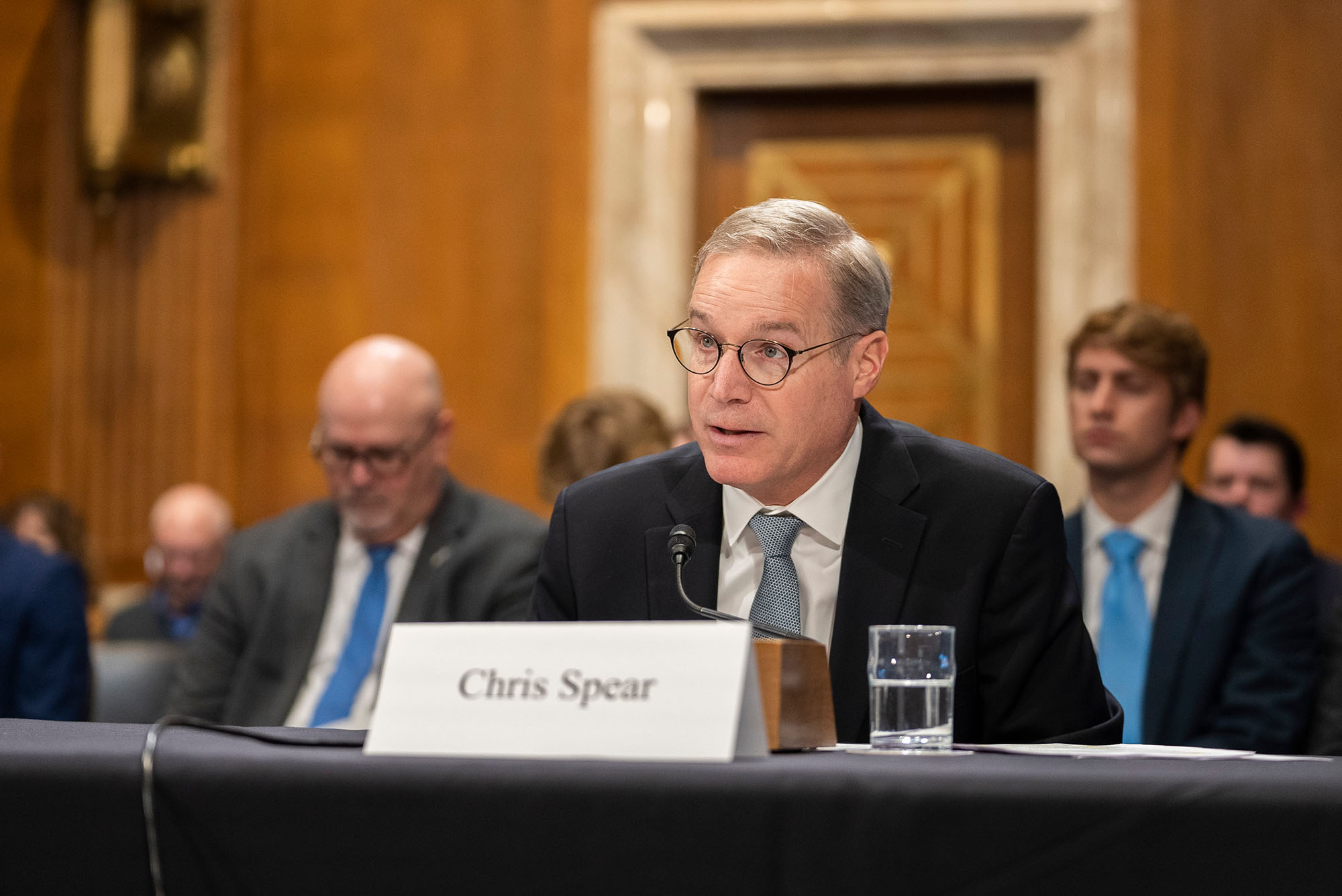
The moment that slows or stops, Americans – your constituents – will want answers."
For the second time in three weeks, ATA President and CEO Chris Spear was on Capitol Hill this morning to engage Congress on the issues impacting our industry and membership – this time before the Senate Environmental and Public Works Committee, which has wide jurisdiction over federal energy policy.
These debates now occurring in Washington on decarbonizing transportation have profound implications for motor carriers, industry suppliers, and OEM partners. Getting in front of them is critical to shaping policy outcomes that support trucking in our mission to deliver for the American people while further reducing our environmental footprint.
Here are 3 key takeaways from Spear's testimony:
1. The trucking industry starts with 'yes.'
We're committed to our environment and have a proven record to show for it.
- The trucking industry has eliminated 98.5% of emissions from our tailpipes. 60 trucks today emit what 1 truck emitted in 1988.
- ATA and EPA created the SmartWay program saving participating fleets more than 4 billion gallons of fuel – over $19 billion saved.
- Those fuel savings resulted in massive emission reductions of 2.7 million short tons of nitrogen oxide; 112,000 short tons of particulate matter; and 143 million metric tons of CO2.
2. Congress has low-hanging fruit to take care of.
A national climate strategy can work toward long-term solutions while also capitalizing on more short-term gains:
- Repeal the World War I era Federal Excise Tax, which keeps cleaner and safer trucks off our roads.
- Invest IIJA monies in strategic projects that reduce our nation's carbon emissions and make our supply chain infrastructure more resilient.
- Start with the obvious: America's top 100 highway bottlenecks.
3. Feds need to step up on realistic national standards.
California's mad dash to zero threatens to destabilize an achievable transition to lower-carbon fuel sources. This careful process requires parity, market incentives, necessary infrastructure, and access to a wide supply of scarce natural resources essential to the technological demands of decarbonized transportation.
Government mandates that get ahead of realistic timelines and dictate private market decisions without the equipment and resources to get the job done is not a roadmap to success. It is a direct route toward economic and political disaster.
In case you missed it: Extreme"Net-Zero" carbon timelines are on a collision course with reality